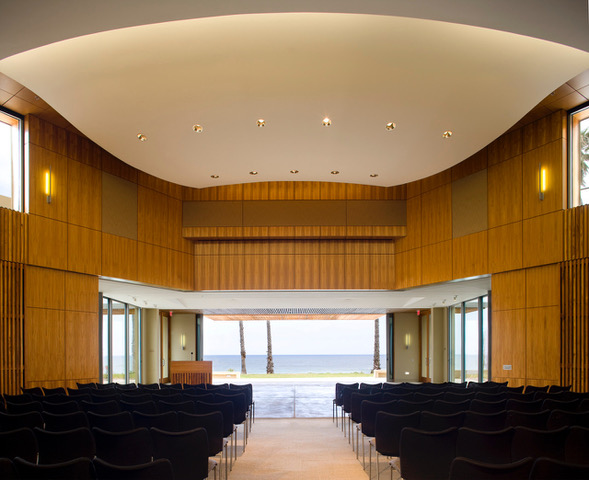
Institutional Seminar Series
(in person)
Tuesday, January 16th, 2024
at Scripps Seaside Forum Auditorium
12 p.m. Talks begin w/ Q&A
Pizza to be served after, will have vegan and gluten free options
-------------------------
TITLE: Harnessing Signal Processing in Underwater Acoustics: Source Localization, Tracking, and Performance Enhancement
ABSTRACT: Underwater acoustic signal processing is an application of signal processing across various multidisciplinary fields in underwater acoustics. Ocean engineers, acousticians, physicists, oceanographers, and marine biologists utilize signal processing in underwater remote sensing systems for diverse estimation and inference purposes. Underwater acoustic signals are employed indirectly to obtain information about the object of interest or the state of nature. This information can be the acoustic signals themselves (location, speed, direction) or the properties of the medium through which the acoustic signals propagate (depth/thickness/sound speed profile of the ocean or seabed).
First, among underwater signal processing tasks (detection, classification, localization, and tracking), I will focus on underwater signal source localization and tracking using sensor arrays. Localization is estimating the position of the source of the underwater acoustic signal of interest. Tracking is a task where, given a time sequence of data, the goal is to perform the localization of the source over time.
Second, this talk will cover our recent exploration of Data Augmentation in Signal Processing: Enhancing Performance through Artificial Data Generation. This initiative aims to explore the concept of data augmentation, which involves improving the quality of existing data or virtually generating data using existing data.
The objective of this research is to develop advanced underwater acoustic signal processing techniques and deepen our understanding of ocean acoustics.
BIO: Yongsung Park's research interests include underwater acoustics, ocean engineering, array signal processing, sparse signal recovery, statistical signal processing, Bayesian inference, and machine learning. As a member of Dr. Peter Gerstoft's NoiseLab, we have been exploring signal processing not only for ocean acoustic signals but also for acoustic signals in general, seismic signals, and electromagnetic signals. He earned his doctoral degree in 2019 from the Seoul National University (SNU), South Korea. In 2019, he was a researcher at the Research Institute of Marine Systems Engineering, SNU. He joined SIO as a postdoctoral researcher from 2019 to 2022. Since March 2022, he has been serving as an assistant project scientist.
TITLE: Untangling aerosol-cloud interactions with machine learning
ABSTACT: Human-induced aerosols, like sulfate particles, have a dual role in the climate: they cool our planet by reflecting sunlight and also influence cloud formation, which, in turn, affects aerosols. However, the intricate nature of these interactions poses a significant challenge in our ability to attribute historical climate trends and accurately predict future climate changes.
BIO: Duncan Watson-Parris (Asst. Professor, Scripps Institution of Oceanography and Halıcıoğlu Data Science Institute) leads the new Climate Analytics Lab (CAL) which focuses on understanding these interactions, and their representation within global climate models. In this talk he will describe recent work using machine learning (ML) to tackle this challenge and improve our understanding of the effects of aerosol on our climate.
*Talks will not be recorded.




